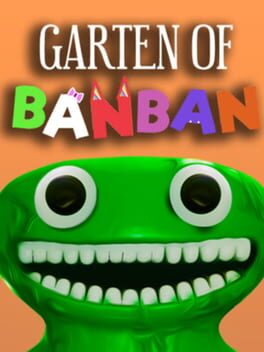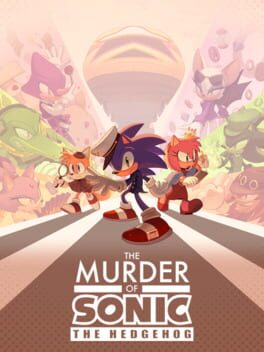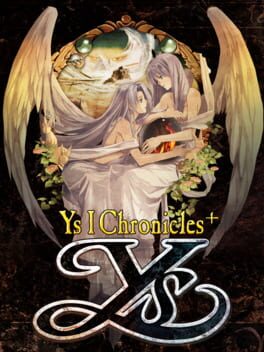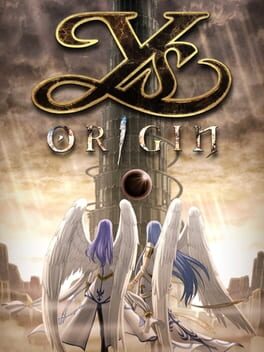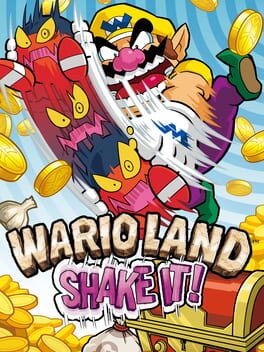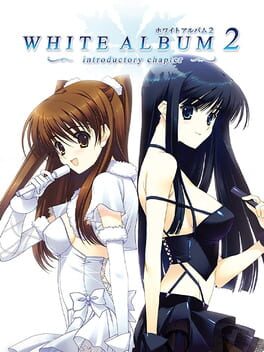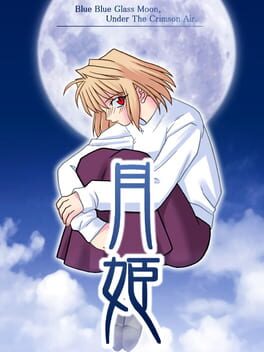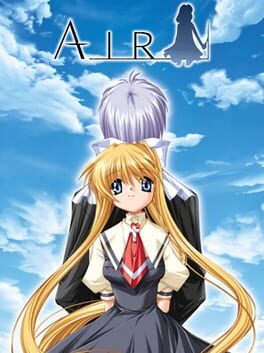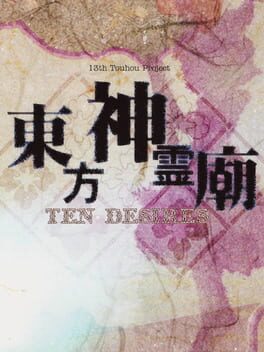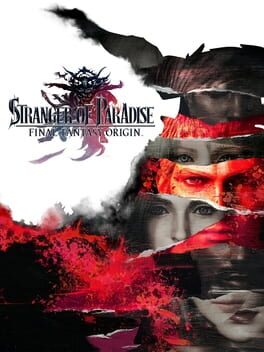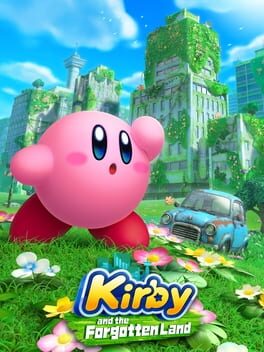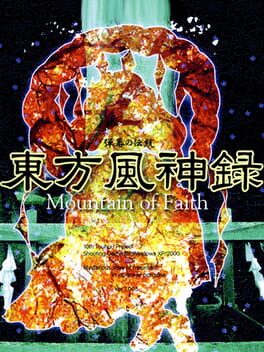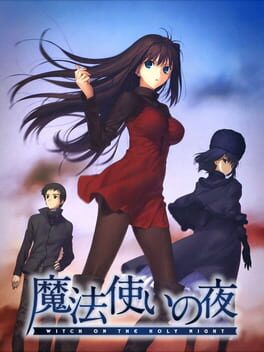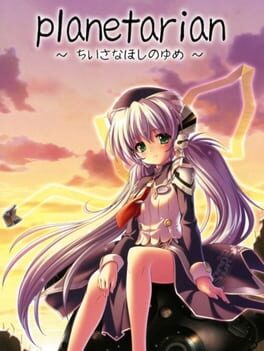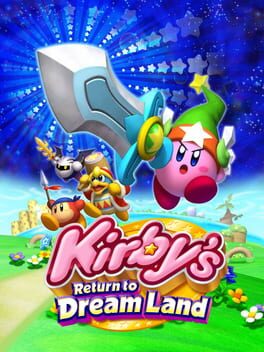raisingcanes
2023
western game devs be like "okay time to make a quirky visual novel as a joke because... erm.... THAT'S not weird....????" and then make it actually compelling challenge
i don't know what to tell you man. the art's good because the idw team is behind it, of course it's good. writing is average modern sonic fare; "earnest" to a point but constantly self referential with 2010s "quirky" humor and already-dated meme references. music is inoffensive but unmemorable. id take this over the so quirky omg!!!! xD dating sim route that loser-ass companies like blizzard take (amazed they could release something involving consensual relationships) but this shtick is really really tired and the game just wasn't good enough to justify the joke. minigame sucked too.
i don't know what to tell you man. the art's good because the idw team is behind it, of course it's good. writing is average modern sonic fare; "earnest" to a point but constantly self referential with 2010s "quirky" humor and already-dated meme references. music is inoffensive but unmemorable. id take this over the so quirky omg!!!! xD dating sim route that loser-ass companies like blizzard take (amazed they could release something involving consensual relationships) but this shtick is really really tired and the game just wasn't good enough to justify the joke. minigame sucked too.
2013
i feel that time has been really kind to ys i, particularly thanks to this stellar remake. i played with the 2001 "complete" assets just due to it generally feeling and looking more suited to what i like out of this series aesthetically - so shoutout to this version for providing those options.
in returning to ys for the first time in around a decade, i was thrown back to the newgrounds-era "rpg" flash games you'd see around a lot; three towns, a dungeon, a few bosses, referential humor... it's really cozy. ys i complete is like a really, really polished version of that with some kickass tunes and memorable areas. having just come off of my first playthrough of ys origin, it was especially cool to revisit darm tower in its original state - i'd totally forgotten this connection to the original!
some backtracking and boss fights are a little nonsense, and i'd complain more about the whole level grinding thing if it didn't cap at 10. playing the steam version, i did need to fuck around with the settings to make the final boss actually palatable thanks to a still-unresolved glitch in that release... but all things considered, yeah, this was a fun ride. between this and origin, i'd consider myself a fan of ys thus far!
in returning to ys for the first time in around a decade, i was thrown back to the newgrounds-era "rpg" flash games you'd see around a lot; three towns, a dungeon, a few bosses, referential humor... it's really cozy. ys i complete is like a really, really polished version of that with some kickass tunes and memorable areas. having just come off of my first playthrough of ys origin, it was especially cool to revisit darm tower in its original state - i'd totally forgotten this connection to the original!
some backtracking and boss fights are a little nonsense, and i'd complain more about the whole level grinding thing if it didn't cap at 10. playing the steam version, i did need to fuck around with the settings to make the final boss actually palatable thanks to a still-unresolved glitch in that release... but all things considered, yeah, this was a fun ride. between this and origin, i'd consider myself a fan of ys thus far!
2006
Note: This review stands only as a review of Yunica's route thus far. I'm giving myself a little break and I plan to go back for the other two routes fairly soon. I'll edit this review to reflect those experiences as well.
My exposure to Ys was brief and over a decade ago - if memory serves, I played the Famicom versions of the first three or four games and essentially forgot the experiences over time. A few friends of mine are fans of this series, and while I stall on starting Trails In The Sky over after losing like 20 hours' worth of save progress a year ago, I figure I might as well make an attempt to get back into Falcom's other big money-maker. And wow - what a way this has been to get me back into the franchise proper!
Being that I seem to enjoy action-adventure titles like this, if my mixed but mostly positive feelings upon returning to Link To The Past mean anything, this was everything I was looking for from a combat perspective. Ys Origin gets you right into the thick of it only a few minutes into the game, and its battles are tight, dynamic and interesting. Even level grinding, which as I understand it is a series "tradition" (read: plague, but more on that later) isn't as bad as it could be thanks to the addictive ebb and flow of controlling this game. You're offered a very simple toolkit while controlling Yunica, and the game more or less goes "alright, this is all you need - now figure out how to scale Devil's Tower". And for the most part, it succeeds. There were only a handful of moments I needed to look outside what the game gave me to work with - almost all of them facepalm "oh, duh" moments in retrospect.
Story in Yunica's route is light but enjoyable. Her ardent "friendship" (zesty as hell!) with the goddesses is really cute, and the supporting cast is pretty fun if mildly engaging beyond their moments. Shout out to Roy for rocking that fluoride stare like a motherfucker. I can't wait to check out what these two angsty twinks I'm gonna get to play as offer me in their time in the spotlight, too. Yunica in particular kind of reminds me of Estelle from Trails, but keep in mind that's based on my limited time with that character.
Addressing my few grievances, honestly, they're pretty simple fixes. Give this thing a rotating camera a la Trails In The Sky so I'm not caught behind higher-level textures without being able to see my character. More importantly, allow more leeway for bosses to be killed purely through skill as opposed to just needing to be the right fucking level to progress - make those low-level runs MEAN something! - and I think you've got basically a perfect game within this style. Looking forward to seeing how I feel on return visits, but my first climb through Devil's Tower was a ton of fun.
My exposure to Ys was brief and over a decade ago - if memory serves, I played the Famicom versions of the first three or four games and essentially forgot the experiences over time. A few friends of mine are fans of this series, and while I stall on starting Trails In The Sky over after losing like 20 hours' worth of save progress a year ago, I figure I might as well make an attempt to get back into Falcom's other big money-maker. And wow - what a way this has been to get me back into the franchise proper!
Being that I seem to enjoy action-adventure titles like this, if my mixed but mostly positive feelings upon returning to Link To The Past mean anything, this was everything I was looking for from a combat perspective. Ys Origin gets you right into the thick of it only a few minutes into the game, and its battles are tight, dynamic and interesting. Even level grinding, which as I understand it is a series "tradition" (read: plague, but more on that later) isn't as bad as it could be thanks to the addictive ebb and flow of controlling this game. You're offered a very simple toolkit while controlling Yunica, and the game more or less goes "alright, this is all you need - now figure out how to scale Devil's Tower". And for the most part, it succeeds. There were only a handful of moments I needed to look outside what the game gave me to work with - almost all of them facepalm "oh, duh" moments in retrospect.
Story in Yunica's route is light but enjoyable. Her ardent "friendship" (zesty as hell!) with the goddesses is really cute, and the supporting cast is pretty fun if mildly engaging beyond their moments. Shout out to Roy for rocking that fluoride stare like a motherfucker. I can't wait to check out what these two angsty twinks I'm gonna get to play as offer me in their time in the spotlight, too. Yunica in particular kind of reminds me of Estelle from Trails, but keep in mind that's based on my limited time with that character.
Addressing my few grievances, honestly, they're pretty simple fixes. Give this thing a rotating camera a la Trails In The Sky so I'm not caught behind higher-level textures without being able to see my character. More importantly, allow more leeway for bosses to be killed purely through skill as opposed to just needing to be the right fucking level to progress - make those low-level runs MEAN something! - and I think you've got basically a perfect game within this style. Looking forward to seeing how I feel on return visits, but my first climb through Devil's Tower was a ton of fun.
it's funny how much wario land: shake it contradicts itself. incredibly stylized animations and boss designs combating far more generic level structure and aesthetics than the series' previous entries. tight, puzzle-based challenges with loose, obnoxiously motion-centric controls. linear pathways leading to streamlined in-and-out playthroughs but worlds blocked off by incessant exploration, or worse, grinding. i want to like this game more than i do but i can't justify putting it up with wario lands 3, 4 or probably even 2. it's decent, worth a quick play, but i wouldn't give it much beyond that.
Goodness, am I glad that I finally got around to playing this one. It's funny, generally when you hear talk about White Album 2, all of the attention is given to the Closing Chapter section of the game - and in fairness, I can understand how with full context of the story I'm sure Introductory Chapter serves as an informative and enticing but ultimately inferior and brief prologue - but I'd yet to hear people talk much about this first entry and... wow, am I amazed!
Music is and was my first love. Some of the fondest experiences of my life involve creating music with dear friends, seeing live shows, and writing songs in which I could express myself on a level I just couldn't anywhere else. Of course, given how integral to the story music and the bonds created and ultimately severed by the experience of that expression present in White Album 2, there was no doubt that this story was destined to hit a deep chord with me. What I appreciate here especially is how the soundtrack is not only fantastic ("Fill You", a rearranged rendition of a piece from the first White Album, is now one of my favorite "background" VN pieces) but also used diegetically within White Album 2 itself to deepen the bonds between its cast and their craft. Those early sections in which what I assumed was a generic piano backing track was slowly intertwined with shoddy, but steadily improving electric guitar improvisation, just behind it in time listening to match the chords... that was the moment I knew I was in for something special. It's when it clicked just who was behind that mysterious piano, and in that moment I realized I was in love with White Album 2. The vocal tracks are stand-out as well, and I appreciate the fact that the composers actually went out of their way to make full original tracks for the concert performance section. Leaf and Aquaplus are obviously titans within the VN sphere, and while many of my favorite titles were obviously made with lower budgets and that's generally something I really love (Umineko, Higurashi, Tsukihime), White Album 2 is a key example of masterful use of a budget this game deserved in order to really thrive.
I'm going to keep this review largely spoiler-free, so I'll tread lightly when talking about the characters in depth. With that said, Introductory Chapter is such a refreshing take on the romance visual novel, particularly within the eroge sphere. It's refreshing to see a game that very clearly has a motive behind being within this genre, to serve a purpose and analyze three very real-feeling teenage characters trapped in their own hedgehog's dilemmas. I resonate with some of the aspects of all three of the main cast members, but I also find them to be deeply self-centered, manipulative, and capable of deplorable actions. People hurt each other, and especially at such a volatile and experimental age as theirs. Honestly, I just wish I had more time with these three, to explore these dynamics further and really let these bonds be felt. Still, I especially appreciate what we have here, particularly when it focuses on the friendship forged by leading girls Kazusa and Setsuna. There is care in every heart-wrenching interaction, and I believe these characters and their struggles. In fairness, I write this review without getting around to Closing Chapter yet, so perhaps I haven't arrived at the "point" of the story - but Introductory Chapter is so good I was left wanting more of this section - which is a rare complaint to have with the "prologue" section of any visual novel!
No doubt I'm in for a gut-punching, reaching-for-the-Kleenex sobfest of a treat in Closing Chapter - Introductory had me choked up once or twice enough to know what's up. But don't let the spotlight cast on its sequel fool you - Introductory Chapter is a masterfully arranged, beautifully composed, and earnestly moving albeit sweetly brief introduction to the deep drama of White Album 2. I am so, so excited to see where this is going.
Music is and was my first love. Some of the fondest experiences of my life involve creating music with dear friends, seeing live shows, and writing songs in which I could express myself on a level I just couldn't anywhere else. Of course, given how integral to the story music and the bonds created and ultimately severed by the experience of that expression present in White Album 2, there was no doubt that this story was destined to hit a deep chord with me. What I appreciate here especially is how the soundtrack is not only fantastic ("Fill You", a rearranged rendition of a piece from the first White Album, is now one of my favorite "background" VN pieces) but also used diegetically within White Album 2 itself to deepen the bonds between its cast and their craft. Those early sections in which what I assumed was a generic piano backing track was slowly intertwined with shoddy, but steadily improving electric guitar improvisation, just behind it in time listening to match the chords... that was the moment I knew I was in for something special. It's when it clicked just who was behind that mysterious piano, and in that moment I realized I was in love with White Album 2. The vocal tracks are stand-out as well, and I appreciate the fact that the composers actually went out of their way to make full original tracks for the concert performance section. Leaf and Aquaplus are obviously titans within the VN sphere, and while many of my favorite titles were obviously made with lower budgets and that's generally something I really love (Umineko, Higurashi, Tsukihime), White Album 2 is a key example of masterful use of a budget this game deserved in order to really thrive.
I'm going to keep this review largely spoiler-free, so I'll tread lightly when talking about the characters in depth. With that said, Introductory Chapter is such a refreshing take on the romance visual novel, particularly within the eroge sphere. It's refreshing to see a game that very clearly has a motive behind being within this genre, to serve a purpose and analyze three very real-feeling teenage characters trapped in their own hedgehog's dilemmas. I resonate with some of the aspects of all three of the main cast members, but I also find them to be deeply self-centered, manipulative, and capable of deplorable actions. People hurt each other, and especially at such a volatile and experimental age as theirs. Honestly, I just wish I had more time with these three, to explore these dynamics further and really let these bonds be felt. Still, I especially appreciate what we have here, particularly when it focuses on the friendship forged by leading girls Kazusa and Setsuna. There is care in every heart-wrenching interaction, and I believe these characters and their struggles. In fairness, I write this review without getting around to Closing Chapter yet, so perhaps I haven't arrived at the "point" of the story - but Introductory Chapter is so good I was left wanting more of this section - which is a rare complaint to have with the "prologue" section of any visual novel!
No doubt I'm in for a gut-punching, reaching-for-the-Kleenex sobfest of a treat in Closing Chapter - Introductory had me choked up once or twice enough to know what's up. But don't let the spotlight cast on its sequel fool you - Introductory Chapter is a masterfully arranged, beautifully composed, and earnestly moving albeit sweetly brief introduction to the deep drama of White Album 2. I am so, so excited to see where this is going.
2000
Rewrite incoming, when I find the time. This is one of my favorite stories ever told, and while I'm still proud of the effort I placed into my original review, this game has come to mean an incredible deal to me and I would like to be able to discuss, in much greater detail, my reassessment of it as a full work, as well as the ways in which it has unquestionably changed me and helped me grow as an artist. No question, a flawed work, but it's simply one of those things that I haven't stopped thinking about in months, almost daily. I think any of you who read my work enough (and thank you, honestly, so much for that) know the kind of thing I'm talking about. Expect a much more in-depth writing on Tsukihime in the near future.
2001
My first playthrough of this legendary Key novel since about a decade ago, and I'm happy to say that AIR still remains a beautiful, memorable experience that I'm very happy to have spent a few weeks coming back to. If Kanon was the game in which Maeda et al found their ground after departing from Tactics, AIR is the game which ensured that Key would remain a titanic presence within the visual novel sphere for years to come.
Fittingly, I suppose the word that might best define AIR is "breezy". Despite many titles that it would go on to influence tearing deep into melodrama and bombastic moments - some incredible, some misguided - AIR is remarkably quiet and distant for the entirety of its run. The dreamy, faraway summer haze that permeates AIR allows each story, each moment, to blend borders of days and times to create a very amorphous, congenial tone. Although they ultimately play lesser roles in the story as a whole, the stories of Minagi and Kano are enjoyable to simply exist in - and though certainly not quite as memorable or composed as the main scenario, their routes certainly contribute to the game's larger thematic structure and pathos.
Ultimately, though, Jun Maeda and Yūichi Suzumoto are the star penmen here - and the conclusive triad of Misuzu's route, the Summer arc, and the Air arc are the core of this work's thesis. AIR, ultimately, is about tackling our preconceptions of "futility" and the impossible, about how we process our own individuality and the hedgehog's dilemma, and about the liquidous construct of family. Minagi's route in particular sets up the pins for Maeda to strike through with the minimalist profundity that would define Clannad only four years later, and Suzumoto offers a very essential parable of the extent of love, sacrifice, and perseverance in Summer that no doubt allowed him to create his later masterpiece, Planetarian. Shinji Orito's score is textbook Key mastery, as well - very stark instrumentation that packs a punch when it's necessary; dreamy, glittering, gentle, and bittersweet. Again, AIR is breezy, and I can't say that much actually happens during this intangible, distant summer - but it's the mere existence of its cast and their drive to simply "be" that creates the emotional and personal statements that will keep you thinking about it, even when it's gone.
A distant memory, something you can hold close and just barely recall finer details. You might not remember the faces. You might not recall which days held what adventures. You might not even remember what you chose to say to her while you had the chance. Despite all that, it's a story that stuck with me for a decade, stuck hard enough to call me back to go through its motions, laugh, cry, think, and feel the things I did as a teenager - like it was the first time, even though I'd been here before. The story remains the same, no matter how much you change. Remember that girl and her story, even when you've grown apart, no matter how many years it's been since you last opened the cover and read. She is waiting, like she always has, in the air.
Fittingly, I suppose the word that might best define AIR is "breezy". Despite many titles that it would go on to influence tearing deep into melodrama and bombastic moments - some incredible, some misguided - AIR is remarkably quiet and distant for the entirety of its run. The dreamy, faraway summer haze that permeates AIR allows each story, each moment, to blend borders of days and times to create a very amorphous, congenial tone. Although they ultimately play lesser roles in the story as a whole, the stories of Minagi and Kano are enjoyable to simply exist in - and though certainly not quite as memorable or composed as the main scenario, their routes certainly contribute to the game's larger thematic structure and pathos.
Ultimately, though, Jun Maeda and Yūichi Suzumoto are the star penmen here - and the conclusive triad of Misuzu's route, the Summer arc, and the Air arc are the core of this work's thesis. AIR, ultimately, is about tackling our preconceptions of "futility" and the impossible, about how we process our own individuality and the hedgehog's dilemma, and about the liquidous construct of family. Minagi's route in particular sets up the pins for Maeda to strike through with the minimalist profundity that would define Clannad only four years later, and Suzumoto offers a very essential parable of the extent of love, sacrifice, and perseverance in Summer that no doubt allowed him to create his later masterpiece, Planetarian. Shinji Orito's score is textbook Key mastery, as well - very stark instrumentation that packs a punch when it's necessary; dreamy, glittering, gentle, and bittersweet. Again, AIR is breezy, and I can't say that much actually happens during this intangible, distant summer - but it's the mere existence of its cast and their drive to simply "be" that creates the emotional and personal statements that will keep you thinking about it, even when it's gone.
A distant memory, something you can hold close and just barely recall finer details. You might not remember the faces. You might not recall which days held what adventures. You might not even remember what you chose to say to her while you had the chance. Despite all that, it's a story that stuck with me for a decade, stuck hard enough to call me back to go through its motions, laugh, cry, think, and feel the things I did as a teenager - like it was the first time, even though I'd been here before. The story remains the same, no matter how much you change. Remember that girl and her story, even when you've grown apart, no matter how many years it's been since you last opened the cover and read. She is waiting, like she always has, in the air.
i was getting my ass thoroughly beat by the sudden jump in difficulty in subterranean animism (really fun game though) so i figured i'd jump in and clear this one since it's of the era and i'd heard it was easy. and... easy, it definitely was. 1cc'd this on hard without too much headache over the course of two days of practice, which is really fast for me at a new touhou. i wouldn't call ten desires bad per se, but it's definitely my least favorite windows-era mainline touhou. honestly, i'd put it under one or two of the pc-98 games, too. i guess this one felt the least... fun or memorable to me? the designs and plot in this one felt very so-so in comparison to mountain of faith or what i've seen of animism and ufo. the soundtrack was one of the lesser ones too, with only the stage 6 boss' theme really sticking out to me. the game feels SUPER balanced towards reimu and sanae, but i will say youmu's gimmick is cool if impractical. worst aspect of this game is the spirit gauge, though. easily the most disruptive and redundant of all the gimmicks i've seen, and that INCLUDES the ufos, which i like more than most people. resources being limited drives little incentive to points beyond bragging rights. still, this is a windows-era touhou - they're good games pretty much by default. i still enjoyed this enough to 1cc and extra stage clear, but i don't really see myself coming back to this one all that much.
Edit: Just wrapped up my second play-through of this game, and fuck, do I love it even more than the first time. Remains my favorite ARPG of all time. Literally just throw a mini-map on here and a mute option for Jed and it's a perfect game.
It's still pretty surreal, sitting down to write this piece, to be able to say it, but Stranger of Paradise is easily the most ballsy and unique entry the Final Fantasy series has seen since the XIII trilogy, and stands pretty easily as my favorite entry of the post-VIII games. It's like the ambitious, earnest, and thrill-seeking Final Fantasy never left us. After decades of what I feel has been a progression of back-stepping, reductive, and trepidatious entries, Stranger of Paradise bursts in, guns blazing and Limp Bizkit blasting, and demands your attention, your frustration, and your heart.
Through the entire experience, I felt like I'd been transported back to the days in which these types of experiences were the norm for major third parties like Square - parts of me even imagine this must've been what lesser titles like Dirge of Cerberus wanted to be. There is no irony to Stranger of Paradise; what you see is what you get, and it stakes its claim as a new step for action-RPGs loudly and pulls it off in stride. The gameplay is just ridiculously fun - swapping between classes, casting magic and going in for strings of melee combos is a blast to pull off in succession. The boss fights are almost all hype as fuck, with awesome delineations between phases to keep things fresh. Modern takes on Final Fantasy I classic bosses that feel fresh and new, while bringing back memories of my first runs through the original title, created memorable moment after moment. Speaking of, the dungeons are pretty breathtaking - and the choice to model each area lightly after a landmark from another Final Fantasy (Mount Gulg after VIII's Fire Cavern, Crystal Mirage after III's Crystal Tower) made this longtime fan stoked to see every new outing spring to life. A mini-map would've been nice for some of these areas, but it never got all too bad; no traditional dungeon crawling here.
Looting was never too overwhelming, save the few times my inventory filled when I really could've used boss drops, but to see Jack and the crew in whatever obnoxiously loud new outfits I obtained next was a joy after another - especially considered like 70% of the outfits in this game constantly clip through themselves. Oh, I love the jank in this game. It was always a laugh WITH the game, not quite at it, and playing the title as a couch hang-out with close friends only accentuated this.
Not to parrot the exact same sentiment as many others have about the plot, but I have to hand it to Stranger of Paradise for taking it from "tacky, goofy but entertaining anime plot" to "honestly powerful final act" as quickly as it did, and I'm left with a genuinely positive impression over all. Stranger of Paradise is a title confident in what it's doing and honest to God believes in itself - and I do, too. This is my favorite Final Fantasy in a long, long time. Since the XIII games, for sure. And yes, it did it its way.
It's still pretty surreal, sitting down to write this piece, to be able to say it, but Stranger of Paradise is easily the most ballsy and unique entry the Final Fantasy series has seen since the XIII trilogy, and stands pretty easily as my favorite entry of the post-VIII games. It's like the ambitious, earnest, and thrill-seeking Final Fantasy never left us. After decades of what I feel has been a progression of back-stepping, reductive, and trepidatious entries, Stranger of Paradise bursts in, guns blazing and Limp Bizkit blasting, and demands your attention, your frustration, and your heart.
Through the entire experience, I felt like I'd been transported back to the days in which these types of experiences were the norm for major third parties like Square - parts of me even imagine this must've been what lesser titles like Dirge of Cerberus wanted to be. There is no irony to Stranger of Paradise; what you see is what you get, and it stakes its claim as a new step for action-RPGs loudly and pulls it off in stride. The gameplay is just ridiculously fun - swapping between classes, casting magic and going in for strings of melee combos is a blast to pull off in succession. The boss fights are almost all hype as fuck, with awesome delineations between phases to keep things fresh. Modern takes on Final Fantasy I classic bosses that feel fresh and new, while bringing back memories of my first runs through the original title, created memorable moment after moment. Speaking of, the dungeons are pretty breathtaking - and the choice to model each area lightly after a landmark from another Final Fantasy (Mount Gulg after VIII's Fire Cavern, Crystal Mirage after III's Crystal Tower) made this longtime fan stoked to see every new outing spring to life. A mini-map would've been nice for some of these areas, but it never got all too bad; no traditional dungeon crawling here.
Looting was never too overwhelming, save the few times my inventory filled when I really could've used boss drops, but to see Jack and the crew in whatever obnoxiously loud new outfits I obtained next was a joy after another - especially considered like 70% of the outfits in this game constantly clip through themselves. Oh, I love the jank in this game. It was always a laugh WITH the game, not quite at it, and playing the title as a couch hang-out with close friends only accentuated this.
Not to parrot the exact same sentiment as many others have about the plot, but I have to hand it to Stranger of Paradise for taking it from "tacky, goofy but entertaining anime plot" to "honestly powerful final act" as quickly as it did, and I'm left with a genuinely positive impression over all. Stranger of Paradise is a title confident in what it's doing and honest to God believes in itself - and I do, too. This is my favorite Final Fantasy in a long, long time. Since the XIII games, for sure. And yes, it did it its way.
my initial concern that kirby's first proper venture into 3d would be a generic safe player along the lines of super mario 3d land were swiftly vanquished by the time i got to the first boss fight. i hadn't anticipated a kid-friendly action platformer bordering on character action game out of this entry, but here we are. forgotten land is an excellent game, and an exciting step forward for the kirby franchise!
i felt the game did a very good job at combining elements of collectathon and gimmick-centric challenges into the gameplay - typically both things i'm not too keen on. mouthful mode itself was actually a blast for most of the game, because 8 times out of 10, i felt that it was used to introduce new ideas and challenges in a way that kept things fresh. forgotten lands' specialty is certainly in its combat, though, and it's easily the best the series has ever seen. some later-game boss fights felt truly monumental and the focus on tightening up a small range of copy abilities felt like the right move. i suppose my only complaint with that, though, is that only a handful of abilities (sword, hammer, fire and ranger) actually felt viable by endgame; a sequel would do well to balance out the full roster a little more, alongside bolstering the movesets of non-sword powers.
i don't really care about kirby lore but i will say that the story elements here were at the very least entertaining in the moment. presentation was pretty solid, very traditional modern kirby affair with a few stand-out moments. the haunted house levels reminded me of childhood mini-golf courses so of course that got a smile. the soundtrack was... surprisingly just okay. you can generally rely on kirby games to deliver on the music front, but a few tracks aside here, i wasn't exactly impressed. not terrible or anything, though.
having played forgotten land with 2 players, i suppose my most pressing complaint should be obvious: waddle dee sucks! and he's not fun to play as! you see kirby getting these dope new copy abilities all the time and you're stuck with waddle dee's goofy little spear attack - at least throw the guy some upgrades down the line or something! but hey, man, beyond those complaints, forgotten land is still a triumph for a first 3d kirby, and i think if hal labs is wise, they'll harness in on what made this a great entry, hone those elements, and deliver the best kirby ever next time. here's hoping.
i felt the game did a very good job at combining elements of collectathon and gimmick-centric challenges into the gameplay - typically both things i'm not too keen on. mouthful mode itself was actually a blast for most of the game, because 8 times out of 10, i felt that it was used to introduce new ideas and challenges in a way that kept things fresh. forgotten lands' specialty is certainly in its combat, though, and it's easily the best the series has ever seen. some later-game boss fights felt truly monumental and the focus on tightening up a small range of copy abilities felt like the right move. i suppose my only complaint with that, though, is that only a handful of abilities (sword, hammer, fire and ranger) actually felt viable by endgame; a sequel would do well to balance out the full roster a little more, alongside bolstering the movesets of non-sword powers.
i don't really care about kirby lore but i will say that the story elements here were at the very least entertaining in the moment. presentation was pretty solid, very traditional modern kirby affair with a few stand-out moments. the haunted house levels reminded me of childhood mini-golf courses so of course that got a smile. the soundtrack was... surprisingly just okay. you can generally rely on kirby games to deliver on the music front, but a few tracks aside here, i wasn't exactly impressed. not terrible or anything, though.
having played forgotten land with 2 players, i suppose my most pressing complaint should be obvious: waddle dee sucks! and he's not fun to play as! you see kirby getting these dope new copy abilities all the time and you're stuck with waddle dee's goofy little spear attack - at least throw the guy some upgrades down the line or something! but hey, man, beyond those complaints, forgotten land is still a triumph for a first 3d kirby, and i think if hal labs is wise, they'll harness in on what made this a great entry, hone those elements, and deliver the best kirby ever next time. here's hoping.
finally getting back around to my touhou adventures when i need a break from all the visual novel-ing. mountain of faith is another absolute gem from the one-man team shanghai alice, and as far as presentation goes, zun is almost at his absolute best here. the aesthetics, soundtrack and visual appeal of the fights has driven a lot of my favoritism with the touhou series thus far, and that's a good deal of the reason why mountain of faith sits second only behind perfect cherry blossom for me so far. where titles like the aforementioned cherry blossom or imperishable night went for very rustic or spiritual aesthetics in their design, mountain of faith bursts with psychedelic color with moments like the bright red leaves of stage three giving way to the cool browns and blues of its river brook backdrop just wowwing... enough to get you caught in danmaku your first few goes around. and this HAS to be the best soundtrack yet, bar none. "romantic fall" blows the first stage competition out of the water, but "the gensokyo the gods once loved", "fall of fall", "youkai mountain", and the debut of sanae to "faith is for the transient people"... jesus christ. it's zun at full power, track after track.
maybe it's the fact that i was playing on hard, but one of my few complaints with mountain of faith is how heavily i felt it goaded me into using bombs, particularly during the kanako fight. there's nothing wrong with using bombs, and in a pinch i'll throw one out if i have to, but i generally like the feeling of knowing i can get through even the toughest 1cc runs bombless if i play my cards right. maybe i need more practice, but it felt like there were more times than normal for me in a touhou game where the solution to a predicament during a spell card was a bomb. but if that's the biggest complaint i have about the game, then it's hardly anything to get too hung up over. mountain of faith gives me a lot of hope for this new generation of touhou - excited to see how zun follows this one up.
maybe it's the fact that i was playing on hard, but one of my few complaints with mountain of faith is how heavily i felt it goaded me into using bombs, particularly during the kanako fight. there's nothing wrong with using bombs, and in a pinch i'll throw one out if i have to, but i generally like the feeling of knowing i can get through even the toughest 1cc runs bombless if i play my cards right. maybe i need more practice, but it felt like there were more times than normal for me in a touhou game where the solution to a predicament during a spell card was a bomb. but if that's the biggest complaint i have about the game, then it's hardly anything to get too hung up over. mountain of faith gives me a lot of hope for this new generation of touhou - excited to see how zun follows this one up.
2012
Mahōtsukai no Yoru is likely Nasu at his most restrained, mature and delicate - and it is so emblematic of his progress as an author as a result. This being the fourth of the big four Type-Moon works I've experienced - after Tsukihime, Fate/stay night and Kara no Kyōkai in that order - it's clear for me to see the evolution play out in real time; ironic considering that both KnK and Mahōyo were, as I understand it, initially written before Tsukihime. Though, it's clear Nasu et all took time to really rethink their approach with this one, and frame this ultimately tiny and breezy story as the introspective-yet-removed narrative masterpiece it is. As I've sat and reflected on Tsukihime and Fate/stay night in the months since I completed them, while working my way through Mahōyo, I think I've come out the other end loving all three of these works about equally, for different reasons. I'll talk about that more when I get around to rewriting my review of Tsukihime as well, but for the moment, know this - I've officially come to really love and be deeply inspired by the works of Type-Moon. These are wonderful stories, no matter how flawed in their varying levels of execution. As far as execution goes, though, I think there's a very strong argument to be made that Mahōyo represents Type-Moon at their very best...
First and foremost, while my personal tastes lean more towards the time-stood-still, distant Y2K-ish look of the original Tsukihime, there's simply no denying that Koyama, Takeuchi and their team were on the top of their game here artistically. The amount of polish and detail present in the character sprites, backgrounds, and CGs in Mahōyo is simply astonishing. And, when combined with the animation direction of Tsukuri Monoji, the result is an often jaw-dropping experience that pushes the boundaries of what can be considered typical visual novel presentation. Simply, I think Mahōtsukai no Yoru is the most visually stunning visual novel I've ever played, even outdoing the 3D modeling and impressive pseudo-animations of Muv-Luv Alternative. Lead composer Hideyuki Fukawsawa and longtime Type-Moon contributors James Harris and Keita Haga deliver my favorite soundtrack to a Type-Moon title since the original Tsukihime, with highlights including the somber, beautiful “Aozaki Aoko” and the truly fairytale-ish “Kuonji Alice”, the motifs for Mahōyo’s heroine pair.
Mahōtsukai no Yoru is a story rather atypical for Type-Moon, refreshingly. There’s not much in the way of twists and turns here; what you see is largely what you get, and the game telegraphs its moves in a way that allows you to see why things will play out the way they will, rather than anything catching you entirely off-guard. There are no trademark Type-Moon mind shatterers here like Tsukihime and particularly Fate/stay night were fond of, but the tradeoff comes in the subtle, fleshed-out characterization of its main trio. Rather than the protagonist-centric focus the narratives of the other big Type-Moon works focus on, Mahōyo is notably distanced from its cast, allowing each of them their own time to exist on a 1:1 level with the text. Neither Aoko nor Sojūrō nor Alice is the focal point with which our moral or thematic comprehension is balanced; they are three equally weighted presentations of the same ideas, granted the same weight and the same time alone and with one another to gather understanding of themselves alone and in communication. This is a morally dubious and somewhat standoffish trio of protagonists, but three people who you also come to understand, appreciate, and fall in love with over the course of the story. Simply put, it’s my favorite cast dynamic Type-Moon has presented since the Far Side of the Moon’s take on the mansion cast in Tsukihime - and there’s some very obvious overlap with that group here.
Sojūrō gets an extra gold star from me here, arguably my favorite male lead of the big four Type-Moon works - his background of growing up in the wilderness is reflected clearly in his dissociation with what could be considered the “moral binary”, and while being a sweet and well-meaning person, he’s still very much alien to the world around him in a way that feels isolating, complex, and earnestly believable. Aoko was a favorite of mine already from her appearance in Tsukihime, but I’ve come to love her further after visiting her own story of youth and complicated relationships with her surroundings and herself. Alice struck a real chord with me; her type of emotional despondence that melts little by little overtime has always been a favorite story of mine when told well (Hisui also happens to be likely my favorite Type-Moon character) and I found that she was probably my favorite of the cast when all was said and done.
The thematic drive of Mahōyo isn’t that far-off from some of their earlier works, but the means with which they’re explored are refined and a great deal more interpersonal than in those stories. These are people with their morals and drives largely figured out, but need to learn how to deal with the overwhelming experience of simply understanding and being understood by other people - not always an easy thing to do. Rather than Shiki or Shirō’s journeys to allow themselves some sympathy and genuine understanding, Aoko, Alice and Sojūrō must look outward and extend those things to each other - because they are a group stronger together than they ever could be alone. I’d be very curious to see how Nasu actually intends to follow up Mahōyo with its two sequels (which I’ll believe when I see them out, not just concept art or a teaser - signs I’ve become a real Type-Moon fan), but as it stands… yeah, Mahōyo is another masterpiece to rest Type-Moon’s laurels on. A provoking, beautiful, somber and yet… breezy and light experience. The game, in some respects, I’d been waiting to see from them since Far Side of the Moon in Tsukihime.
First and foremost, while my personal tastes lean more towards the time-stood-still, distant Y2K-ish look of the original Tsukihime, there's simply no denying that Koyama, Takeuchi and their team were on the top of their game here artistically. The amount of polish and detail present in the character sprites, backgrounds, and CGs in Mahōyo is simply astonishing. And, when combined with the animation direction of Tsukuri Monoji, the result is an often jaw-dropping experience that pushes the boundaries of what can be considered typical visual novel presentation. Simply, I think Mahōtsukai no Yoru is the most visually stunning visual novel I've ever played, even outdoing the 3D modeling and impressive pseudo-animations of Muv-Luv Alternative. Lead composer Hideyuki Fukawsawa and longtime Type-Moon contributors James Harris and Keita Haga deliver my favorite soundtrack to a Type-Moon title since the original Tsukihime, with highlights including the somber, beautiful “Aozaki Aoko” and the truly fairytale-ish “Kuonji Alice”, the motifs for Mahōyo’s heroine pair.
Mahōtsukai no Yoru is a story rather atypical for Type-Moon, refreshingly. There’s not much in the way of twists and turns here; what you see is largely what you get, and the game telegraphs its moves in a way that allows you to see why things will play out the way they will, rather than anything catching you entirely off-guard. There are no trademark Type-Moon mind shatterers here like Tsukihime and particularly Fate/stay night were fond of, but the tradeoff comes in the subtle, fleshed-out characterization of its main trio. Rather than the protagonist-centric focus the narratives of the other big Type-Moon works focus on, Mahōyo is notably distanced from its cast, allowing each of them their own time to exist on a 1:1 level with the text. Neither Aoko nor Sojūrō nor Alice is the focal point with which our moral or thematic comprehension is balanced; they are three equally weighted presentations of the same ideas, granted the same weight and the same time alone and with one another to gather understanding of themselves alone and in communication. This is a morally dubious and somewhat standoffish trio of protagonists, but three people who you also come to understand, appreciate, and fall in love with over the course of the story. Simply put, it’s my favorite cast dynamic Type-Moon has presented since the Far Side of the Moon’s take on the mansion cast in Tsukihime - and there’s some very obvious overlap with that group here.
Sojūrō gets an extra gold star from me here, arguably my favorite male lead of the big four Type-Moon works - his background of growing up in the wilderness is reflected clearly in his dissociation with what could be considered the “moral binary”, and while being a sweet and well-meaning person, he’s still very much alien to the world around him in a way that feels isolating, complex, and earnestly believable. Aoko was a favorite of mine already from her appearance in Tsukihime, but I’ve come to love her further after visiting her own story of youth and complicated relationships with her surroundings and herself. Alice struck a real chord with me; her type of emotional despondence that melts little by little overtime has always been a favorite story of mine when told well (Hisui also happens to be likely my favorite Type-Moon character) and I found that she was probably my favorite of the cast when all was said and done.
The thematic drive of Mahōyo isn’t that far-off from some of their earlier works, but the means with which they’re explored are refined and a great deal more interpersonal than in those stories. These are people with their morals and drives largely figured out, but need to learn how to deal with the overwhelming experience of simply understanding and being understood by other people - not always an easy thing to do. Rather than Shiki or Shirō’s journeys to allow themselves some sympathy and genuine understanding, Aoko, Alice and Sojūrō must look outward and extend those things to each other - because they are a group stronger together than they ever could be alone. I’d be very curious to see how Nasu actually intends to follow up Mahōyo with its two sequels (which I’ll believe when I see them out, not just concept art or a teaser - signs I’ve become a real Type-Moon fan), but as it stands… yeah, Mahōyo is another masterpiece to rest Type-Moon’s laurels on. A provoking, beautiful, somber and yet… breezy and light experience. The game, in some respects, I’d been waiting to see from them since Far Side of the Moon in Tsukihime.
this was one of my first visual novels many moons ago, and i'm happy to say that key still manages to tug at my heartstrings and pull out the tears, even when i know what's coming and how the lay of the land is.
in one of key's first true left-field moves, planetarian is a starkly different story as far as location and secondary themes go when compared to key's surrounding work, but the pathos and earnest love of humans as individuals and the basis for timeless dynamics rings through here just as prominently as in clannad and little busters!. i can see the potential read of "it's sort of messed up that the thematic hook in yearning for the earth humanity has lost comes in the package of a robotic customer service worker", but at the same time, i think key opts to forgo the sociopolitical discussion here and write closer to what they know - earnest, human compassion, even when the definition of "human" is blurred for both protagonist of wire and circuit, as of flesh and bone. for the right person, this just might be a fantastic recommendation to get started with vn's as they come. another feather in key's cap.
in one of key's first true left-field moves, planetarian is a starkly different story as far as location and secondary themes go when compared to key's surrounding work, but the pathos and earnest love of humans as individuals and the basis for timeless dynamics rings through here just as prominently as in clannad and little busters!. i can see the potential read of "it's sort of messed up that the thematic hook in yearning for the earth humanity has lost comes in the package of a robotic customer service worker", but at the same time, i think key opts to forgo the sociopolitical discussion here and write closer to what they know - earnest, human compassion, even when the definition of "human" is blurred for both protagonist of wire and circuit, as of flesh and bone. for the right person, this just might be a fantastic recommendation to get started with vn's as they come. another feather in key's cap.
the new super mario bros. wii of the kirby series. fun multiplayer and generally a polished if somewhat forgettable experience from a design standpoint - and like nsmb wii, would become the blueprint for the next few years of the series, new titles essentially becoming "return to dream land with [insert gimmick]" for a while. good title without a lot of identity to call its own, but what's here is a quick enjoyable ride.
